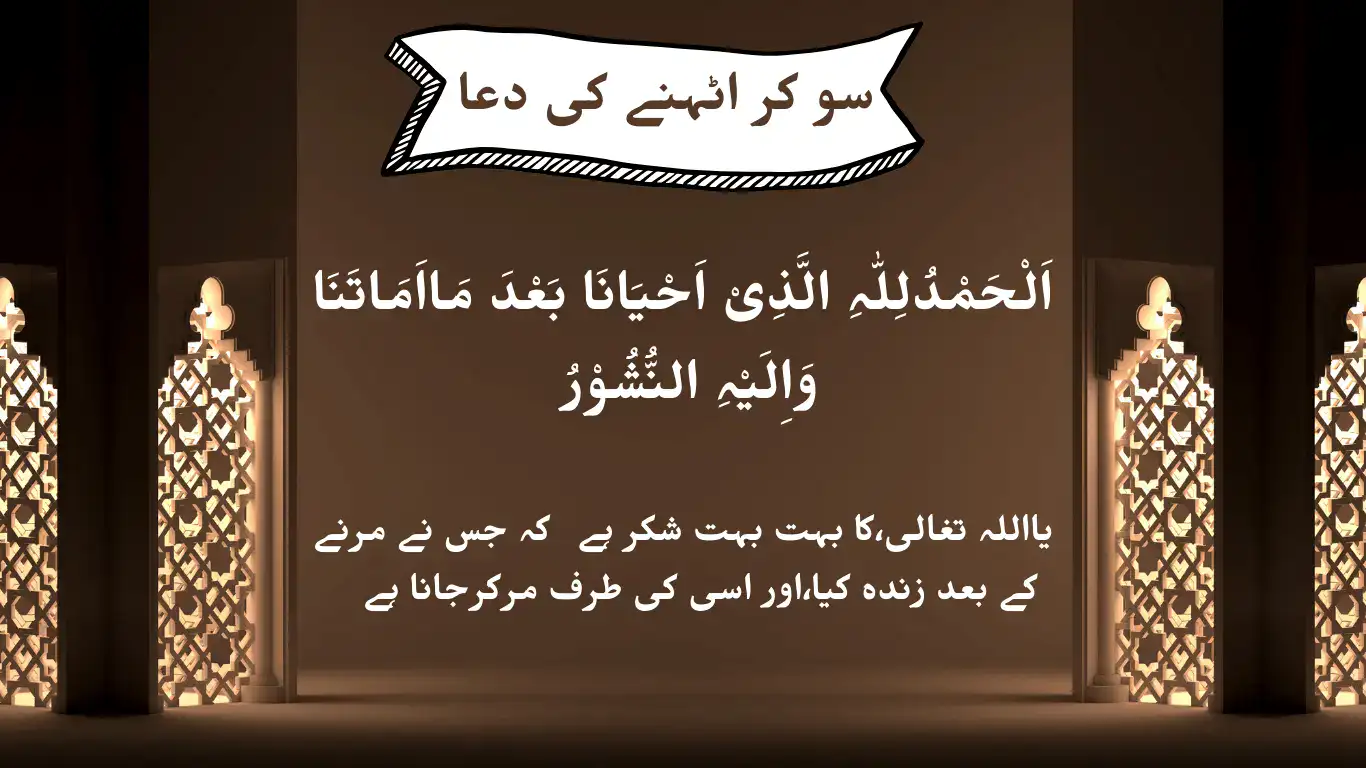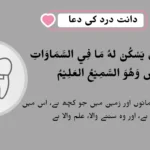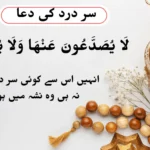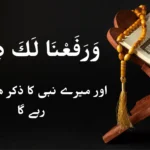Waking up in the morning is a blessing that many of us often overlook. As Muslims, we are encouraged to start our day by thanking Allah (SWT) for granting us life after a night’s sleep. This gratitude is beautifully expressed in the so kar uthne ki dua, a simple yet profound prayer recited upon waking up. Not only does it set a spiritual tone for the day, but it also reminds us of Allah’s mercy and the opportunity to live another day to seek His pleasure.
So Kar Uthne Ki Dua in Arabic
The dua to be recited upon waking up is as follows:
Arabic:
الْحَمْدُ لِلَّهِ الَّذِي أَحْيَانَا بَعْدَ مَا أَمَاتَنَا وَإِلَيْهِ النُّشُورُ
English Translation:
“All praise is for allah who gave us life after having given us death (sleep) & to Him is the resurrection.”
Urdu Translation:
“تمام تعریفیں اللہ کے لیے ہیں جس نے ہمیں موت (نیند) کے بعد زندگی دی اور ہمیں اسی (اللہ)کی طرف لوٹنا ہے۔”
| Morning Prayer – Subah Uthne Ki Dua |
| Dua for Sleep – Sote waqt ki dua |
| Sar Dard Ki Dua (Headache Relief Prayer) |
| Ghar Me Dakhil Hone Ki Dua |
Why Is It Important to Recite So Kar Uthne Ki Dua?
Reciting this dua after waking up has significant spiritual and emotional benefits. Here are some reasons why this practice is important:
- Gratitude and Mindfulness: The dua reminds us to be thankful for the gift of life. Waking up every morning is not just a routine; it’s a blessing.
- Strengthening Connection with Allah: By starting the day with remembrance of Allah, we align ourselves with a day filled with purpose and spiritual awareness.
- Positive Mindset: This dua helps foster a positive mindset by acknowledging the opportunity to live another day and make the best of it.
- Symbol of Humility: It reminds us of the fragility of human life and that we are ultimately under Allah’s care and will.
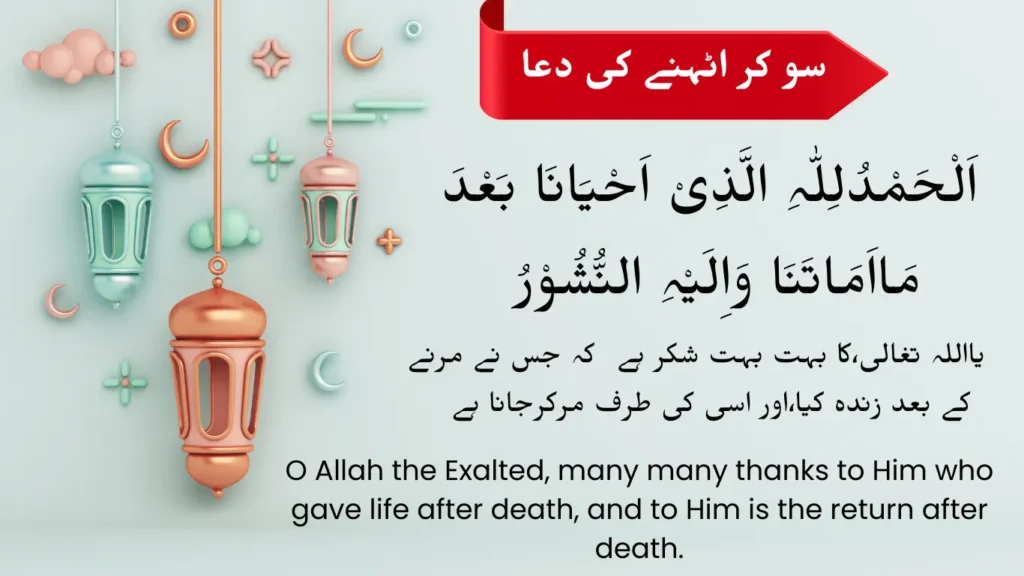
How to apply the Dua into Your Daily Routine
Incorporating this dua into your morning routine can be incredibly beneficial. Here are some simple steps to ensure you recite the so kar uthne ki dua every day:
- Keep It Visible: Place a card or note with the dua beside your bed as a reminder to recite it as soon as you wake up.
- Recite with Intention: Be mindful when you recite the dua. Pause for a moment to reflect on its meaning and how you are thankful for the new day.
- Teach Your Family: Encourage your children and family members to recite this dua as well. This helps in instilling gratitude and mindfulness from a young age.
The Spiritual and Physical Significance of Waking Up
In Islam, sleep is considered a minor death, and waking up is viewed as a rebirth, allowing us another chance to fulfill our duties and seek forgiveness. When we recite the so kar uthne ki dua, it serves as a reminder that one day, we will wake up in the Hereafter, where we will face Allah’s final judgment.
Reciting the dua daily can also positively influence your physical well-being by instilling a sense of calmness and purpose from the start of your day.
Conclusion
Reciting the so kar uthne ki dua is a beautiful way to start your day with a heart full of gratitude and remembrance of Allah. It serves as a daily reminder of the fragility of life and the importance of making the most of every moment. By incorporating this dua into your routine, you can create a habit of mindfulness and spiritual connection that benefits you in both this life and the Hereafter.
Make this dua a regular part of your morning ritual, and watch how it transforms your mindset, bringing you closer to Allah with every new day.
FAQs:
The so kar uthne ki dua holds great significance as it reminds Muslims to start their day by thanking Allah for the blessing of life. It strengthens one’s connection with Allah and fosters a positive mindset, setting a spiritual tone for the rest of the day.
Yes, children can and should be taught to recite this dua. It helps instill the values of gratitude and remembrance of Allah from an early age. Teaching children this dua allows them to appreciate life and the blessings of waking up every day.
The phrase “to Him is the resurrection” refers to the Islamic belief that one day, we will all be resurrected and return to Allah for judgment after death. This serves as a reminder of the transient nature of life and the eternal Hereafter.
